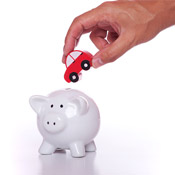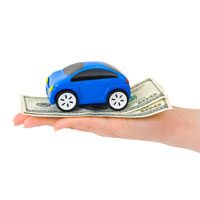8 Tips Proven to Save on Car Insurance Costs in South Charleston

No one in their right mind enjoys paying for car insurance, particularly when the price is too high. Lots of auto insurance companies contend for your hard-earned dollar, and because of this it can be hard to compare insurance companies to get the cheapest price
If you have a policy now or are looking for a new policy, you can use these tips to find the best rates while maintaining coverages. Finding the best rates in South Charleston is not that difficult. West Virginia drivers just need to know the tricks to shop for car insurance on the web.
Where Can I Get Cheap South Charleston Car Insurance?
Finding a lower price on insurance is not rocket science. The only thing you need to do is take the time to compare quotes from different insurance companies. This is very easy and can be done in a couple of different ways.
- One of the best ways to find low rates is to use a rate comparison form click here to open form in new window. This form prevents you from having to do repetitive form submissions to each individual car insurance company. Just one form compares rates from multiple low-cost companies.
- A more difficult way to compare prices requires a visit to each company’s website to complete their respective quote request forms. For sake of this example, let’s say you want to compare Progressive, 21st Century and GMAC. To get each rate you have to spend time on each company’s site to input your insurance information, and that’s why the first method is more popular.
For a list of links to insurance companies in South Charleston, click here.
It’s your choice how you get your quotes, but ensure you’re using identical information with each company. If you have unequal deductibles or liability limits it will be next to impossible to truly determine the lowest rate in South Charleston.
Take advantage of discounts
Car insurance companies don’t always list every available discount very well, so we researched both the well known as well as the least known ways to save on car insurance. If you don’t get every credit available, you are paying more than you should be.
- Employee of Federal Government – Employees or retirees of the government could cut as much as 10% off with certain companies.
- Anti-lock Brake System – Vehicles equipped with ABS or steering control prevent accidents and earn discounts up to 10%.
- Student Driver Training – Cut your cost by having your teen driver take driver’s ed class in school.
- Discount for New Cars – Adding a new car to your policy can cost up to 25% less since new cars are generally safer.
- Paperwork-free – Certain companies may give you up to $50 for buying your policy on their website.
- No Charge for an Accident – A handful of insurance companies allow you one accident before hitting you with a surcharge if your claims history is clear for a set time period.
- Lower Rates for Military – Being deployed with a military unit could mean lower rates.
- Sign Early and Save – Some companies give discounts for signing up prior to your current policy expiration. It can save you around 10%.
Keep in mind that most credits do not apply to your bottom line cost. Most only cut the price of certain insurance coverages like liability, collision or medical payments. Just because you may think all those discounts means the company will pay you, it doesn’t quite work that way.
To choose providers with discount car insurance rates in West Virginia, click here to view.
How to know if you need help
When it comes to buying the right insurance coverage, there really is no perfect coverage plan. Everyone’s situation is a little different so your insurance needs to address that. Here are some questions about coverages that might help in determining if you will benefit from professional help.
- Does my vehicle need full coverage?
- Am I covered when using my vehicle for business?
- Do I get a pro-rated refund if I cancel my policy early?
- What is high-risk coverage and where do I buy it?
- What are the financial responsibility laws in West Virginia?
- Does my liability insurance cover pulling a trailer or camper?
- Do I benefit by insuring my home with the same company?
- Am I covered if I drive in a foreign country?
If it’s difficult to answer those questions but one or more may apply to you then you might want to talk to an agent. To find lower rates from a local agent, complete this form or click here for a list of car insurance companies in your area. It’s fast, doesn’t cost anything and you can get the answers you need.
What car insurance coverages do you need?
Knowing the specifics of your car insurance policy helps when choosing which coverages you need and proper limits and deductibles. The terms used in a policy can be impossible to understand and nobody wants to actually read their policy. Listed below are typical coverages found on most car insurance policies.
Comprehensive insurance
This pays for damage that is not covered by collision coverage. You need to pay your deductible first then your comprehensive coverage will pay.
Comprehensive can pay for things such as theft, damage from getting keyed, hail damage and vandalism. The maximum payout you can receive from a comprehensive claim is the actual cash value, so if your deductible is as high as the vehicle’s value consider removing comprehensive coverage.
Coverage for liability
Liability coverage will cover damage or injury you incur to other people or property by causing an accident. This coverage protects you against claims from other people. Liability doesn’t cover damage sustained by your vehicle in an accident.
Split limit liability has three limits of coverage: per person bodily injury, per accident bodily injury, and a property damage limit. You might see policy limits of 50/100/50 which means a limit of $50,000 per injured person, a total of $100,000 of bodily injury coverage per accident, and a limit of $50,000 paid for damaged property.
Liability coverage protects against claims like court costs, bail bonds and medical expenses. How much liability should you purchase? That is up to you, but buy as large an amount as possible. West Virginia requires drivers to carry at least 20,000/40,000/10,000 but you should think about purchasing higher limits.
Collision insurance
This coverage pays for damage to your vehicle resulting from colliding with another car or object. You have to pay a deductible and then insurance will cover the remainder.
Collision coverage protects against claims like colliding with another moving vehicle, scraping a guard rail, hitting a mailbox and crashing into a ditch. Paying for collision coverage can be pricey, so consider removing coverage from vehicles that are 8 years or older. Drivers also have the option to raise the deductible to save money on collision insurance.
Med pay and Personal Injury Protection (PIP)
Coverage for medical payments and/or PIP pay for expenses like nursing services, rehabilitation expenses, chiropractic care, dental work and funeral costs. They can be used to cover expenses not covered by your health insurance policy or if you are not covered by health insurance. They cover all vehicle occupants and will also cover getting struck while a pedestrian. Personal Injury Protection is not an option in every state and may carry a deductible
Uninsured/Underinsured Motorist (UM/UIM)
Your UM/UIM coverage protects you and your vehicle’s occupants when the “other guys” either have no liability insurance or not enough. Covered losses include injuries sustained by your vehicle’s occupants and also any damage incurred to your vehicle.
Due to the fact that many West Virginia drivers only carry the minimum required liability limits (20/40/10), their liability coverage can quickly be exhausted. For this reason, having high UM/UIM coverages is a good idea.
More tips and info about car insurance can be found at the West Virginia Insurance Commission website. West Virginia drivers can file complaints about an insurance agent or broker, read consumer alerts, read industry bulletins, and file complaints about a company.

